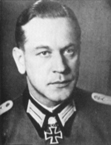Alfred
Posts: 6685
Joined: 9/28/2006
Status: offline

|
quote:
ORIGINAL: Rainer
quote:
In your situation I suspect you have spent 6 months training up only 1 skill set. Your pilots are probably already at level 70 in thatt skill set, consequently any further improvement in that skill and experieince will be extremely slow. Change to training another skill or use "general training" to get your experience above 40.
Thanks a lot, I didn't know that.
Do you think it's a good "curricilum" to train "general" up to, say, level 50, and then switch to specific training?
Rainer,
It depends on what exactly your objective is. I don't know exactly what that is for you, so the following comments may not be appropriate for your situation.
Generally speaking, I think you will find that concentrating on training discrete flying skill sets will be the best means for improving your pilot's experience level. You might consider the following training regime.
1. Fighter unit.
(a) put unit on 100% training
(b) choose "escort" training mission
(c) select altitude of 10k feet or higher
This should result in increasing air skill. Your pilots will probably reach air skill level 70 but still be below 50 experience. Their defence skills will also have increased as a result of this "escort" training but will probably remain some way below your air skill. Now
(d) choose "sweep" training mission
(e) select altitude of 100 feet
This should result in increasing your "straffing" skill. Again, as under the "escort" training both your experience and defence will have increased albeit at a slower rate.
If your pilots still have experience under 50, then train on a third skill set. Use "general" training if the pilots are already trained to a high skill level in the skill sets you consider important for fighter units.
2. Dive bombers
(a) put on 100% training
(b) choose "naval attack" training mission
(c) select 14k altitude
For a second skill set,
(d) choose "ground attack"
Remember, experience is gained quickest from surviving combat. In training it is acquired as a byproduct of improving flying skills which improve at a faster rate than does experience. In training it is acquired as a byproduct of improving flying skills which improve at a faster rate than does experience.
For some aircraft types, the availability of training missions is limited. For these, "general" training is particularly valuable. For example, transport units allow only "transport" and "general" for training missions.
Alfred
|
 Printable Version
Printable Version








 In training it is acquired as a byproduct of improving flying skills which improve at a faster rate than does experience.
In training it is acquired as a byproduct of improving flying skills which improve at a faster rate than does experience. 




 New Messages
New Messages No New Messages
No New Messages Hot Topic w/ New Messages
Hot Topic w/ New Messages Hot Topic w/o New Messages
Hot Topic w/o New Messages Locked w/ New Messages
Locked w/ New Messages Locked w/o New Messages
Locked w/o New Messages Post New Thread
Post New Thread